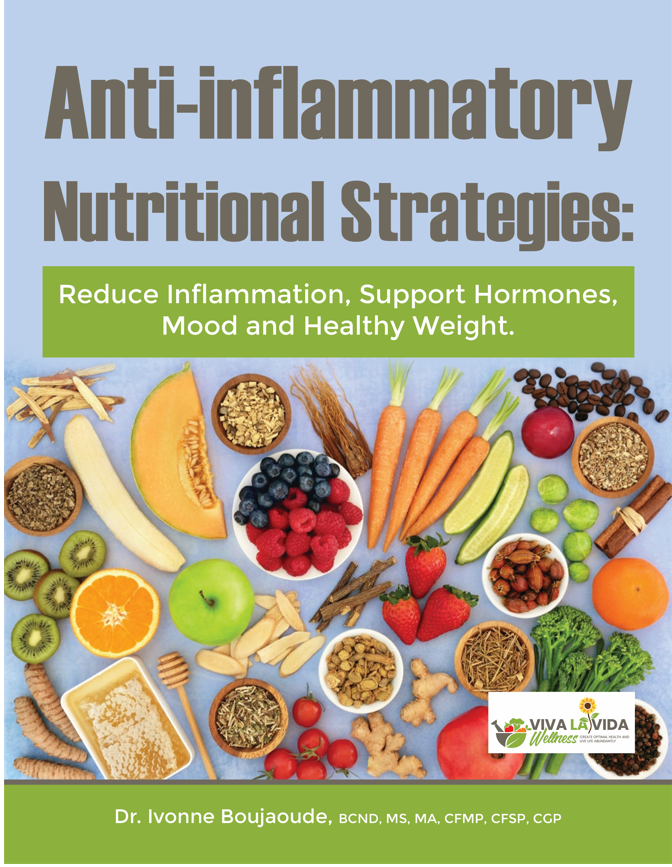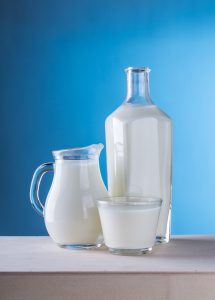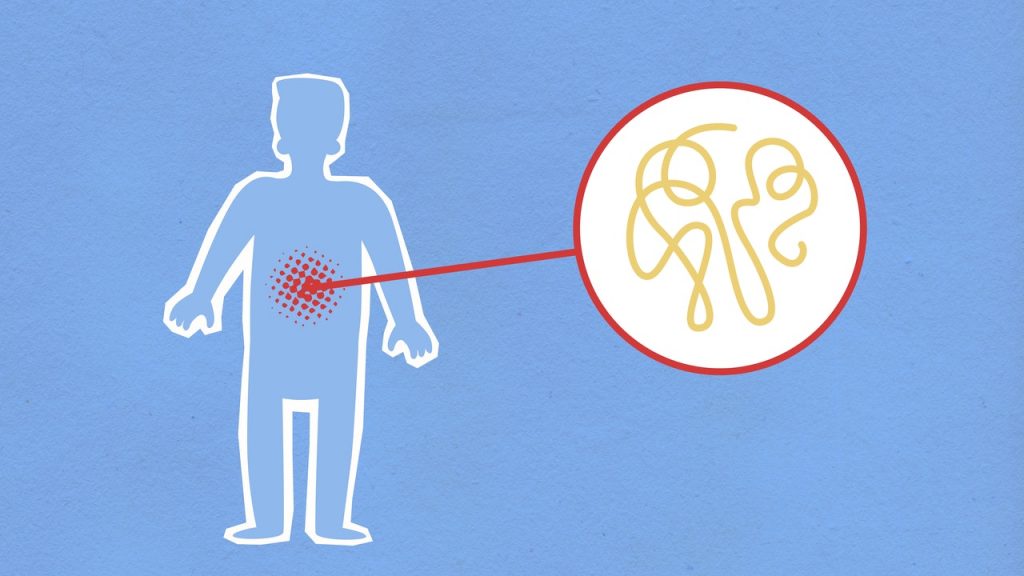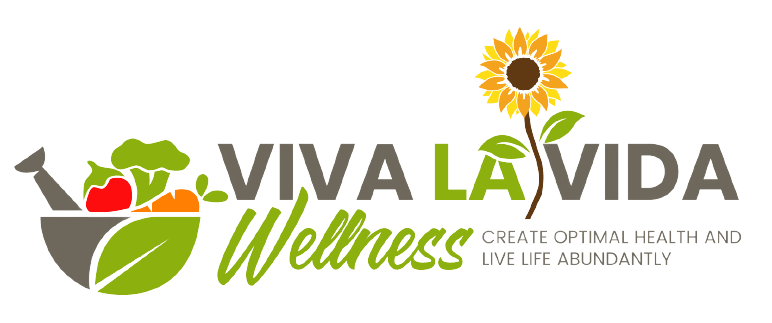Long gone are the days when “You are what you eat” was an accurate statement. Those days were the days when people ate fresh foods, cooked meals at home, there were no GMO’s or Bioengineered foods, fast food and microwaves were non-existent, there were no remote controls, people moved and exercised by default, sleeping at regular hours was a thing, stress was under control and there were strong family and community ties. We live in a new era where it is fast paced, eating whole foods and cooking is an inconvenience, sleep is in the way of getting things done, exercise is only for those who want to lose weight, and keeping up with relationships is not a priority.

The reality is that all of these factors have affected how our body works and is no longer straight forward. It has become highly complex and at time mysterious how our modern way of life has affected our health. So, how is it that “You are with you eat” has become a myth?

Let’s start with some basics. It is a fact that the quality of food becomes the building blocks of your cell, tissues, and organs. However, for these building blocks to be used by your body, they need to be broken down to be properly absorbed. If food is not properly broken down for absorption, your will not reap all the benefits of your food. When you have a healthy diet and you are digesting your food properly, you should not experience any digestive symptoms; or if you do, these should be on rare occasions due to eating the wrong foods, eating in a rush, etc.
Many people have grown accustomed to experiencing, gas, bloating, intestinal pain, constipation, acid reflux (just to name a few) in varying degrees as a normal part of their daily symptoms.These are an indication that they are not breaking down their food properly. In order to breakdown food properly for absorption, your body needs to produce adequate amounts of hydrochloric acid, enzymes and bile to breakdown proteins, carbohydrates, and fats. If any of these are not produce properly, you will experience symptoms(1).
The long-term effects of poor digestions are many. Among these are nutrient deficiencies, risk of developing food sensitivities, gut dysbiosis, unintentional weight gain or loss, chronic fatigue, skin conditions, mood swings, cognitive impairment hormonal dysregulation, poor immune system, toxic liver, gut inflammation, poor sleep and the list goes on and on.
If you are not able to breakdown your food, elimination will be affected as well. When you are not able to breakdown your food properly, the food remains longer in the digestive track leading to a backlog of poorly digested food which then becomes a breeding grown to unhealthy organism such as candida, parasites, etc. and increases your toxic burden. If that was not enough, toxins get reabsorb and re-circulate in the body longer often creating a high toxicity symptom such as poor immune system, headaches, brain fog, low energy, poor sleep, and more.

If not corrected, long term constipation can produce havoc in your overall health and bring on serious health issues. Chronic constipation has been associated with many devastating chronic diseases such as cancer, autoimmune conditions (i.e., Hashimoto’s, fibromyalgia, lupus) Alzheimer’s disease, and Parkinson’s among many others.
How can you truly be what you eat?
By optimizing the:
- Nutrition
- Absorption
- Elimination

1.Optimizing Nutritional Status
The first step is to optimize the nutritional status of your food. Eat a variety of colorful veggies and fruits, leafy greens, seeds, nuts, legumes, whole grains, healthy fats, and meats. Choose organic whenever possible to increase value and avoid toxins (herbicides/pesticides/hormones). Whenever possible choose fresh instead of canned, local and in season, wild caught fish and avoid farm raised. Avoid all GMO or Bioengineered Foods (this is the new branding for GMO or Genetically Modified Foods). Avoid processed foods and junk foods. For a comprehensive guide to improve your foods nutritional status go to www.VivaLaVidaWellness.com and subscribe. You will receive a free eBook.
- Optimize absorption
Let’s review a basic concept no one is talking about. The production of hydrochloric acid, enzymes, and bile, are the function of the parasympathetic system, also known as the “rest and digest”. The parasympathetic nervous system is part of the autonomic nervous system and works in tandem with the sympathetic nervous system. The job of the parasympathetic nervous system is to slow down the system such as heart rate, increasing intestinal and gland activity among others. It has a key role in regulating digestion. On the other hand, the sympathetic nervous system, also known as the” fight or flight”, response in stressful situations and interferes with digestion as its main goal is that of survival (2).

a. Eat in a “stress-free environment and avoid “eating in a rush”.
Eating under stress or in a rush is habit many people have and is one that is most resistant to change. However, it is key that you eat in a “stress free environment” and “avoid eating in a rush” to optimize the production of hydrochloric acid, enzymes and bile. For the great majority of people this is the most challenging but most effective way of improving digestion. It may be also the most important lifestyle change that will impact your overall health. Remember that the parasympathetic nervous system is responsible for digestion, hence it second label “Rest and digest”. There is no way around it. Choose today to make it a habit to reserve time to eat in a relaxed environment, avoid stressful topics or circumstances while eating. If you are stressed and you need to eat, choose easy to digest foods such as a smoothie and avoid hard to digest foods like steak and potatoes.
Before your meal, slow down. You may choose to say a prayer before starting your meal or take a few deep breaths to slow down your system and encourage good digestion.
Occasional and constant high stress level will impact absorption and elimination. Putting you at risk for nutritional deficiencies and higher toxic load.
b. Chew your food thoroughly
It is a bad habit to eat fast and not chew food properly. In times of stress, we tend to rush everything, including chewing our food. Make it a point to slow down and chew your food thoroughly. Have you noticed that when you think of food or see food that is appetizing, you start salivating? Well, your body is getting ready to digest by producing more saliva containing enzymes. You breakdown your food chemically (enzymes) and mechanically (chewing). As you chew your food, enzymes get mix to breakdown food further. In short, chew your food thoroughly to start proper digestion, absorption, and elimination.


c. Food sensitivities
Did you know that the so called “healthy foods” are not necessarily healthy for everyone? Foods like blueberries, kale, spinach, whole wheat, cherries, garlic, soy, grass feed dairy, etc. These are all nutritionally dense foods. But for some individuals, some of the “healthy foods” are actually inflammatory. Food sensitivities are associated with poor nutritional absorptions. In a review article, food sensitivities were found to be associated with nutritional disorders in children such as poor growth, feeding difficulties and micronutrient deficiencies. If you know that certain “healthy foods” produce symptoms when you eat them, anything form digestive symptoms to skin conditions to mental difficulties, and more, then don’t eat them. No matter how healthy they maybe, they are not “healthy” for you. The good news is that many people are able to reintroduce these foods after a “period of elimination” and undergoing a “leaky gut protocol”. However, if you learn that you are sensitive to wheat or gluten, this is a lifetime elimination with a lifetime of benefits (3)

d. Gut infections and dybiosis
Other less known factors interfering with nutrient absorption, are gut infection or dysbiosis. Our gut has an ecosystem known as the microbiome. It has all kinds of diverse microorganism, good and bad. They work together for our benefit. Among this microorganism are bacteria, fungi, parasites, viruses, and their genes. On factor in microbiome health is diversity in the diet. The more diverse the diet, the more diverse the microbiome.
The health of our entire body is dependent on the health and diversity of our microbiome. When there is an imbalance favoring bad microorganism, it is known as dysbosis. Gut dysbiosis affects the breakdown, absorption, and elimination. The same is true with gut infections such as candidiasis, giardiasis, etc. In short, you may consume a high-density nutritional diet but if you suffer from gut dybiosis or a gut infection you are at risk of developing nutritional deficiencies (i.e., iron and B vitamins) and constipation (4)
e. Avoid drinking large amounts of water
If you are already experiencing digestive symptoms, it is best that you avoid drinking large amounts of water or other beverages during meals as these will dilute your digestive juices and negatively impact digestion for optimal absorption. If needed, drink sips of water to moisten your food enough to be able to chew and swallow. It is best to drink water 30 minutes before a meal or 1 hours after.

f. Food combining
Good food combining is a great strategy to improve digestion. This is especially true for those who are already experiencing digestive issues and are wanting to eliminate their symptoms. For other individuals, it is also recommended but not as crucial. The proper food combining is important because proteins, carbs, and fats, digest at different speeds and utilize different enzymes to breakdown. If you eat foods with different speeds and enzyme requirements, it may compromise your digestion. Hence the importance of good food combining. For best digestion and avoidance of symptoms,
- Combine animal protein with veggies and avoid starches,
- Pair starches with healthy fats and veggies
- Leafy greens and non-starchy veggies maybe combined with any food.
- Finally, eat fruit alone.
If you are having issues with digesting, in particular protein, it may be a good idea to try drinking apple cider vinegar (1 to 2 teaspoons) mixed in ½ c water 15 minutes before meals. Choose “organic” apple cider vinegar option. Once mixed in water, it has a mild flavor, and it should not cause any irritation. If it does, this strategy is not for you.

g. Medical Conditions and genetic
Indeed, there are some medical conditions that interfere with nutrient absorptions and elimination such as parasite infections or candida, celiac disease, SIBO (small intestinal bacterial overgrowth) just to name a few.

There are also certain genetic variations such Hemochromatosis or Phenylketonuria and genetics SNIPs such as the MTHFR. Brain injuries are associated with digestive disturbances. These are few of many reasons that diet is best when is individualized to optimize nutritional that result in healthy bodies.
.
3.Optimize elimination

a. Incorporate movement to improve better elimination
If you have a sedentary lifestyle, chances are you may be at a higher risk of developing occasional or chronic constipation. Our digestive system needs movement to work properly. If you don’t move, your bowels are not moving optimally. If you have a desk job, strive to get up and move around, maybe go up or down the stairs to go to the bathroom instead of your floor. Take routine walks on most days. Or better yet, decide to incorporate an exercise routine on most days of the week. It will not only improve your elimination, but it will improve your overall sense of wellness. Finally, you may consider practicing some yoga possess to improve digestion such as the twist, knee to chest, seated forward fold, and happy baby pose.


b.Hydrate, hydrate
It is amazing how many people don’t drink water, and if they do drink, it is usually soda, coffee or tea. All your organs of elimination (intestines, liver, kidneys, skin, lungs) need water to function properly. Your intestines need water to lubricate and soften stools and promote evacuation. If you are not drinking enough water more than likely you are going to have issues with constipation. It is best that you drink water throughout the day. Drink at least half your body weight in ounces. So, if you weight about 150lbs, you should be drinking about 75 ounces of water. If you drink coffee or tea, you need to drink twice as much water of coffee or tea due to their diuretic effect.
c. Eat plenty of fiber to support good elimination
Fiber is key to supporting good elimination. It adds bulk to your stool, and it also acts a broom to the intestines. Fiber absorbs the toxins to be eliminated in the stool. Fiber is also important for a healthy microbiome. The microbiome has many functions in the body. We need a healthy microbiome to be able to digest our foods. It is responsible for producing enzymes, short-chain fatty acids (feed the good bacteria), synthesizes vitamins like K and Bs. In other words, the health of our microbiome has a big impact on our nutritional status, and we need a variety of different fibers to function optimally.

The gut microbiome is a major player in many aspects of our health; among these are the immune system, brain health, hormonal health, etc.

d. Stress Management
You may be eating the healthiest of diets but if you are in a constant state of stress, you are not going to reap the benefits from it. As mentioned before, digestion is a function of the parasympathetic nervous system or the “rest and digest”. If you are constantly in a state of stress, digestion is going to be impacted negatively. Have you noticed that when you get bad news, your job gets stressful or you have a strained relationship, you may experience digestive symptoms like indigestion, bloating, sour stomach and so forth? More than likely, stress is going to always be a part of your life (in varying degrees). For that reason, it is best to learn to manage your stress levels using various strategies, such as prioritizing, eliminating, and adding fun and uplifting activities. Avoiding toxic relationships as well as creating a community that will be there to support you in the good and the bad times. Constant stress levels will affect your digestion and will put you at a higher risk of poor elimination resulting in constipation (5) .
e. Environmental Toxins and Heavy Metals
You may eat a healthy and nutritious diet and wonder why you feel rotten, and your symptoms are not getting better. You eat whole foods and have a healthy lifestyle. Another factor affecting the benefits of eating a healthy diet for some individuals is having a heavy load of environmental toxins and heavy metal. Environmental toxins can be anything from plastics in our foods, mold in the home, perfumes in body products, herbicides/pesticides in foods, etc. Example of heavy metals are mercury in amalgams, lead in paint, aluminum in deodorant, etc. Research has shown that environmental toxins and heavy metals have a negative effect on the microbiome impacting absorption and elimination. There are two major mechanisms that environmental toxins and heavy metals affect the digestive system. It changes the microbiome resulting in a loss of diversity and breaks down the epithelial lining of the intestines making them hyperpermeable resulting in a higher toxic load and a higher risk for number of chronic conditions from obesity, diabetes, cancer, autoimmune conditions and more (7)

In conclusion, “you are what you it” is a myth. “You are what you “eat, absorb, and eliminate”. Optimizing food choices, absorption and elimination is the best strategy in creating healthy building blocks of your cells, tissues, and organs. If you have done your best in changing your diet and lifestyle and still find that a healthy diet is not getting the result you are seeking, it is time to seek a functional and natural solution. This is key, before poor digstion become a risk in the development of a chronic disease that may rob you from enjoying life to the fullest. To get to the root cause of why your “healthy diet” is not creating the results you are seeking, it may be necessary not only to go over your medical history, symptoms and so forth, but some Functional Medicine Testing may be necessary. I invite you to make an Initial Consultation today and start your wellness journey with me and my team at Viva La Vida Wellness, LLC
Viva La Vida!
Dr. Ivonne
References:
- Benjamin J J McCormick, et al, Intestinal permeability and inflammation mediate the association between nutrient density of complementary foods and biochemical measures of micronutrient status in young children: results from the MAL-ED study, Am J Clin Nutr 2019, Oct 1;110(4):1015-102
- Barbara E Goodman, Insights into digestion and absorption of major nutrients in humans, Adv Physiol Educ. 2010 Jun;34(2):44-53.
- Kirsteen N. Browning, and R. Alberto Travagli, Central Nervous System Control of Gastrointestinal Motility and Secretion and Modulation of Gastrointestinal Functions, Compr Physiol. 2014 Oct; 4(4): 1339–1368
- Rosan Meyer, Nutritional disorders resulting from food allergy in children, Pediatr Allergy Immunol 2018 Nov;29(7):689-704.
- Bahtiyar Yilmaz, and Hai Li1, Gut Microbiota and Iron: The Crucial Actors in Health and Disease, Pharmaceuticals (Basel). 2018 Dec; 11(4): 98.
- Hasan Mohajeri, et al, The role of the microbiome for human health: from basic science to clinical applications Eur J Nutr. 2018; 57(Suppl 1): 1–14.
- Hui Duan, et al, Gut microbiota: A target for heavy metal toxicity and a probiotic protective strategy, Sci Total Environ 2020 Nov 10;742:140429






